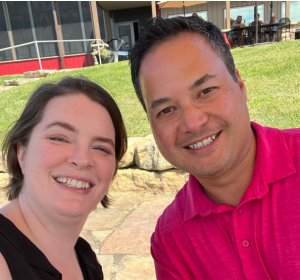Take one step at a time and then take a breath; how to effectively prepare for the ACT/SAT
Being in a good state of mind will not only help you have the capacity to study more effectively, but it will also lighten the emotional burden you may feel during this period.
November 8, 2022
Studying for standardized tests can seem like a big and scary pill to swallow. It’s difficult to know how exactly one should prepare amidst busy schedules of homework, sports and extracurriculars. But by understanding the effective methods of studying and how to make sure you’re taking care of your mental well-being, this challenge suddenly seems much more simple to overcome.
The ACT. The SAT. The two exams that are what most consider to be the climax of one’s academic high school career. The looming monster in the corner that encroaches further and further as you progress through your freshman and sophomore years. Then the time in which you must battle this monster finally arrives. It’s the easy thing to allow yourself to be swallowed by worry and become distraught over how you will score. But no challenge was ever overcome by cowering in a corner. Preparation is your friend; however, that doesn’t mean spending hours upon hours of studying, slowly killing any sort of motivation or drive you had at the get-go.
Before even thinking about how one can best prepare for the ACT or the SAT, let’s review the general foundation of studying effectively. According to learning science research conducted at the University of California San Diego, practicing or reviewing material in increments is an excellent way of learning material. By recalling the information in multiple sessions, you are more likely to be able to store it in your long term memory. This is what is known as Spaced Practice.
Mrs. Donna Videmschek, Director of Counseling, coordinates standardized testing at St. Joe. She agrees that studying a little bit at a time is an effective way to prepare for the ACT or SAT without becoming too overwhelmed.
“[A] student should practice 20 minutes a night for 4-6 weeks before the test. This allows a student to be familiar with the test and to help reduce anxiety,”’ Mrs. Videmschek said, referring to recommendations from the official ACT website.
The other studying method that focuses more on how exactly you should review information is called Retrieval Practice. This is the method of quizzing yourself or doing practice tests only with whatever you can remember off the top of your head. Afterwards, look at what you didn’t remember, and practice until you can remember as much as possible without looking at any notes or other materials.

Having been made aware of studying habits that are backed by actual science, the next order of business is tackling the final ACT/SAT specific final preparation.
The first is to look at your practice test scores. Be keen to notice what areas you did well on, and where you could improve. This will tell you what you need to work on, so that your studying plan will be tailored to be the information that you specifically need to review and not include what you don’t.
Then it’s time to slay that monster. You have a high number of free online resources for preparing for either of the tests, so use them to your advantage! Test prep textbooks are also a good way to study the information that you need in the format that they will be on the actual tests.
When studying, remember to use both Spaced and Retrieval Practice. By doing memory-based reviewing for as little as 20 minutes per night in the weeks following up to your test, you will be set up for success both memory-wise and emotionally.
Class of ‘22 alumna Julia Castellano suggests that taking time for yourself is just as important of a strategy on the long and stressful road of preparation for standardized tests.
“Remember to take care of yourself! Treat yourself to something special after studying or taking a practice test. The small ways that you decide to take care of yourself make a big difference,” Julia said.
Julia brings to light what is most important to remember in the midst of all of this: you need to prioritize your well-being if you want to succeed. Sleep, exercise, nutritious food and proper hydration are just the basics, as taking care of your mental health is also vital. Being in a good state of mind will not only help you have the capacity to study more effectively, but it will also lighten the emotional burden you may feel during this period.
It can feel like the weight of your future is riding heavy on the scores you receive, but it’s important to remember that there is no uniform path to finding success. How you plan ahead and study are the factors in which you can control. So, choose to maximize the multitude of resources at your disposal and give it your best shot once the time arrives. Good luck test-takers!














